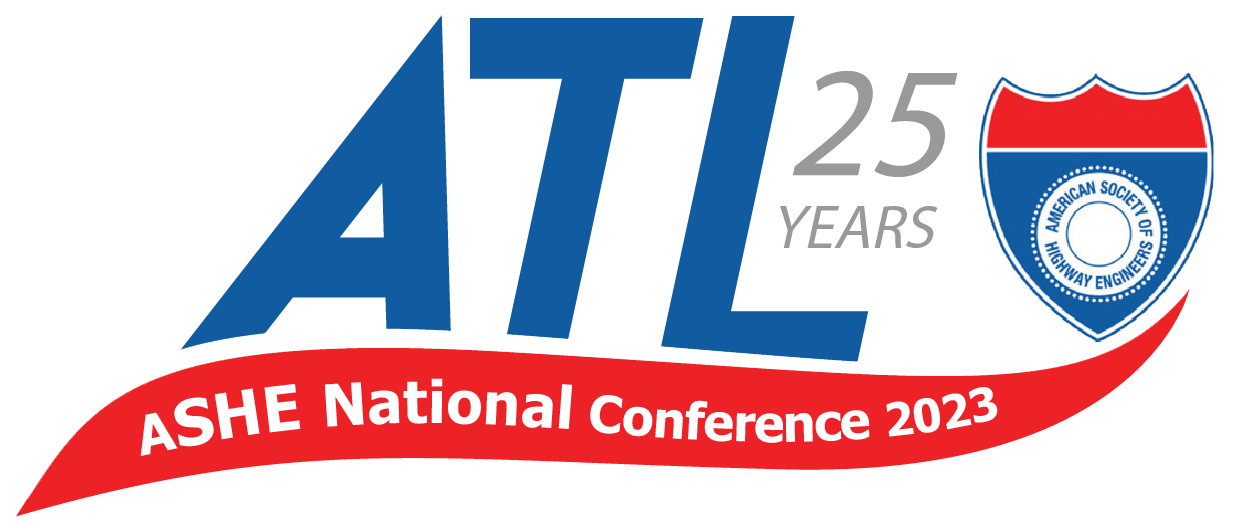
Technical Session #2B – Technology
Topic: GDOT Signal Operations (Sig-Ops) [Traffic Operations]
Speakers: Gul Amir Georgia Department of Transportation (GDOT) & Andy Phlegar Gresham Smith
The Georgia Department of Transportation (GDOT) has raised the bar on traffic signal operations and maintenance throughout the state over the past decade. During this time, GDOT has developed a suite of tools and resources to support the efforts of the engineers working in the Signal Operations (SigOps) programs.
This presentation will discuss various GDOT tools available to signal timing engineers, including
Maxview/Maxtime provides real-time access to view and modify the timing plans and actions at an individual (or group) of traffic signals.
Automated Traffic Signal Performance Measures (ATSPM) provides up to the minute access to traffic signal outputs including detection activity, signal phase termination history and other metrics to help identify and solve traffic issues. ATSPM’s detector data provides sufficient traffic volume information to support operational decisions.
SigOps Metrics provides a dashboard of trend data to support region-wide views of signal operations.
Numetric streamlines the collection of crash history data to support safety oriented operational decisions.
NaviGAtor provides real-time incident management information and full access to CCTVs throughout the region. CCTV video is critical in developing real-time signal timing responses to incidents as they are impacting our roads.
Gresham Smith will present real-world scenarios where these tools were implemented to identify solutions to underlying problems and/or respond to real-time incidents causing major congestion.
Topic: Intelligent Transportation Systems (ITS)
Speaker: Said el Said, PE, Ph.D. Neel-Schaffer
As technology evolves and improves, it is imperative that Information Technology (IT) departments have a major seat at the table in the planning, design, and implementation of Intelligent Transportation Systems (ITS).
IT has become a major partner on projects involving deployment of ITS technology. New challenges are being introduced to satisfy and meet the criteria devices and systems. The deployed technology must satisfy essential criteria introduced by IT to ensure the ITS is secured, compatible, upgradable, and supportable. IT departments worry about the system being agile, resilient, scalable, and modular. Thus, if IT is not a stakeholder at the table at the planning stage of highway projects, the project will require more changes with progress towards design, contracting, deployment, acceptance, and integration.
In addition to coordination with IT, ITS systems are becoming more sophisticated by including Center to Center connectivity, Artificial Intelligence software development, and Real Time connectivity. These challenges require new contracting language that is not typically included in highway contracts and specifications. Thus, IT has become an integral part of ITS and must be treated that way, with a seat at the table from the beginning of any transportation project involving the implementation of ITS devices.
Said founded the ITS section for the Tennessee Department of Transportation (TDOT), and after 18 years with TDOT, he joined Neel-Schaffer where he is the ITS Program Manager. His job is to help clients understand rapidly evolving transportation technology which includes connected vehicles, unmanned aerial systems, and smart infrastructure applications.
Topic: Comparing Connected Vehicle Data Accuracy to Optical Traffic Sensors: What’s the Real Truth on the Ground?
Speaker: Glynn Dennis Jr., Ph.D. Rekor
The transportation industry is well aware of the massive amount of data generated by connected vehicles (CVs). This data can power insights into traffic patterns, helping city planners and traffic engineers make more informed decisions for projects. CV data can supplement existing infrastructure, like optical traffic sensors, providing more expansive roadway coverage, especially in more rural regions. Despite all of this, it has been difficult to determine the accuracy of CV data when it comes to measuring average daily traffic (ADT) and driver speeds.
Rekor, which provides Al-based solutions for traffic analytics and transportation management, recently conducted a research study comparing aggregated CV data to data derived from its traffic sensors deployed in the southeastern US. Rekor’s team specifically focused on the accuracy of vehicle count and speed data along eight individual road segments. This investigation is a comparative statistical analysis between Rekor’s optical sensors and GPS*derived CV data over a one-week time period over the fall of 2021.
Glynn Dennis, Rekor’s VP of Global Data & Analytics, will present initial findings from the study. Identifying the accuracy of each data source should help cities and DOTs become more informed on the reliability and accuracy of their data. The same methodology will be replicated next year for a larger research project in St. Louis, MO.
Based in Maryland Headquarters, Glynn Dennis Jr., Ph.D. is responsible for driving Rekor’s enterprise wide vision, strategy, and execution for all data management, analytics, and data science activities across Public Safety, Urban Mobility, and Transportation Management. Glynn brings over 20 years of experience leading large-scale, enterprise-grade digital transformation initiatives in the Biotechnology and Pharmaceutical Industries.


Leave A Comment
You must be logged in to post a comment.